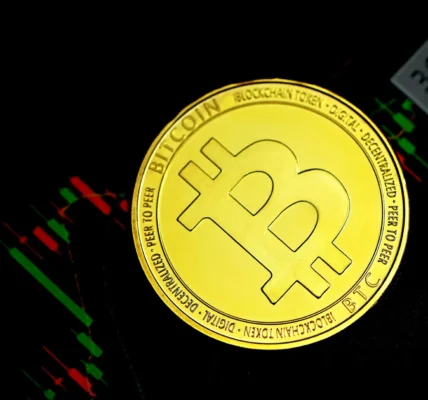NORTH MIAMI – FEBRUARY 20: Elinor Mantin shops for groceries at Lorenzo’s Supermarket as a new … [+]
Getty Images
If you look at the market prices of consumer goods you’ll much more often than not be blinded to inflation’s truth.
To which more than a few readers will reply that prices are precisely the way to divine inflation. Figure that the Consumer Price Index (CPI) is “the price of a weighted average market basket of consumer goods and services purchased by households,” and CPI is the commonly accepted measure of inflation by economists.
Except that there’s much economists near monolithically believe that is at odds with reality. The vast majority of economists view Gross Domestic Product (GDP) as the standard measure of a country’s economic health, but simple logic tells those without PhDs that GDP is a monument to double counting that would cause even the most crooked of accountants to blanch.
The obnoxious conceit of GDP is that it presumes the introduction of new demand by governments that powers growth. No, production is the only source of demand and governments produce nothing. GDP is fraudulent.
So is the popular belief among economists that war is economically stimulative. No it’s not. People drive economic growth by dividing up work across man and machine around the world, yet war is about the death of people and the destruction of machines. By its very name, war is the most economically destructive act of all.
Which at the very least will hopefully cause people to rethink the market prices that economists rely on to allegedly divine whether or not there’s inflation. If they’re wrong about so much else, maybe inflation too? A definite maybe.
To see why, never forget that prices move up and down all the time for all sorts of reasons. Natural disasters like earthquakes and hurricanes can obviously inhibit all manner of production that might slow global cooperation in production or the arrival of a crucial input in the creation of a market good. Wars have already been mentioned, and they by their very name slow or halt production and cooperation that is the path to soaring production in concert with lower prices.
On March 26 of this year, the unexpected collapse of the Key Bridge substantially slowed the delivery of freight to businesses on the east coast and beyond, with higher costs and prices the result. In March of 2020, the globalized shutdown of production even more logically distorted prices then, and well into the future: in a world defined by highly sophisticated global cooperation in the production of everything, it was and is quite logical that prices would long remain elevated to reflect just how interconnected the global economy is.
What’s important, however, is that none of these price movements of the higher kind have or had anything to do with inflation. Instead, they indicate that prices can surge for all sorts of reasons in concert with falling prices elsewhere.
Yes, a higher price driven by externalities by definition signals a falling price elsewhere. Economics is about tradeoffs. Externalities can and do bring on higher prices without having anything to do with currency error (inflation).
What’s important is that globalized production has by far the biggest impact on the prices of everything. Nothing else comes close. Yet when globalized production was muzzled such that prices naturally increased as a consequence, economists turned to the Fed to centrally plan lower prices. Economists were trafficking in non sequitur while at the same time glossing over the fact that work divided looms largest on prices.
In short, economists focused on elevated prices are missing the point in pointing the finger at the Fed and government spending. To focus on the former is to ignore where price impact is truly substantive, while the latter amounts to double counting. Economist being economists, one supposes.





